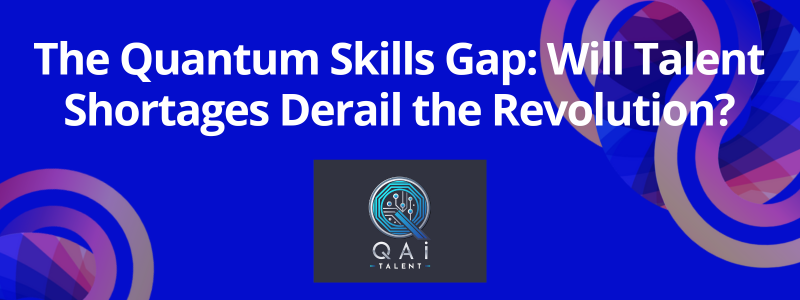The Quantum Skills Gap: Will Talent Shortages Derail the Revolution?

The Quantum Skills Gap: Will Talent Shortages Derail the Revolution?
Quantum computing is reshaping industries—from cryptography and drug discovery to finance and logistics—moving rapidly from research labs to real-world deployment. While global players like IBM and startups like PsiQuantum are accelerating commercialisation, a critical challenge threatens to stall progress: a global shortage of skilled quantum professionals. This issue will be front and centre at Quantum.Tech Rotterdam 2025.
Demand is surging, though growth is nonlinear, with regional dips emerging in 2025. Reports from McKinsey and the Quantum Economic Development Consortium show rising job postings since 2020, driven by $5 billion in annual private investment and $40 billion in cumulative global commitments. With just one qualified candidate for every three openings, talent supply lags. The U.S. alone faces a shortfall of over 1,200 specialists each year.
Startups like Quantinuum and Classiq, along with corporates such as JPMorgan and Airbus, are racing to build in-house quantum teams—often relying heavily on academic partnerships. In-demand roles range from software and hardware engineers to “quantum translators” who connect technical capability with commercial impact. But fragmented software platforms, as highlighted in IQM’s recent report, continue to hinder workforce development and adoption.
Europe leads in research, supported by the €1 billion EU Quantum Flagship and institutions like QuTech and Oxford. The European Quantum Skills Academy (launching 2026) aims to scale industry-ready talent. In the U.S., initiatives like MIT xPRO and the University of Chicago bootcamps are retraining engineers, while Asia expands capacity through Japan’s Q-LEAP and China’s academic push. New demand from cybersecurity, telecoms, and government is growing fast, driven by PQC mandates from the US, UK, and EU.
To address the gap, universities are expanding curricula, and organisations like Quantum Industry Canada are scaling internships. Platforms such as Qureca, QuantX, and IBM’s Qiskit Summer School offer hands-on training. Corporate academies from Microsoft and Amazon upskill internal teams, while outreach programs like Women in Quantum, Code.org, and national quantum grants are building a longer-term pipeline. Upskilling existing professionals and hiring from adjacent technical and scientific fields are now critical strategies to expand capacity and accelerate impact in quantum. strategies to increase capacity and reduce time-to-impact. If solved, this gap could unlock breakthroughs in fields ranging from climate modelling to next-generation cybersecurity.
Global competition for talent is intensifying. Without skilled professionals, quantum’s promise may falter. Hiring and upskilling today will determine who leads the quantum era.
At QAi Talent, we help quantum innovators close this gap with team gap analysis, strategic hiring, upskilling, and retention support—building teams for today and tomorrow.
Meet us at Quantum.Tech Rotterdam or visit qaitalent.com to start building your quantum workforce.

